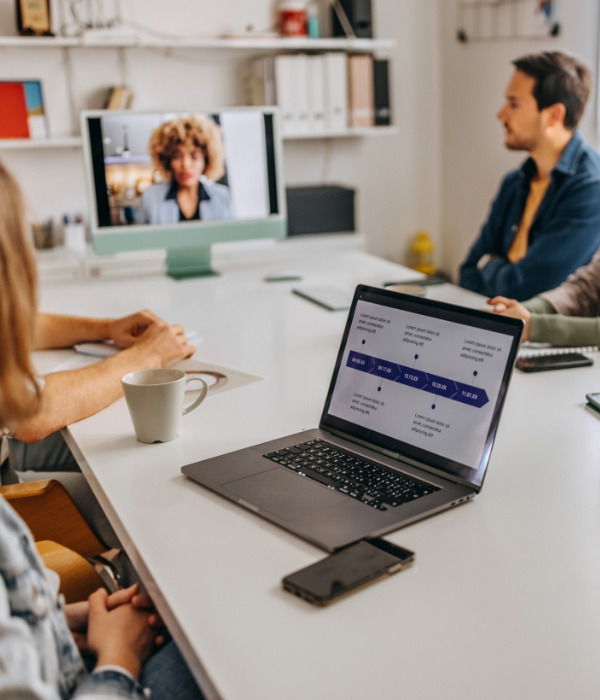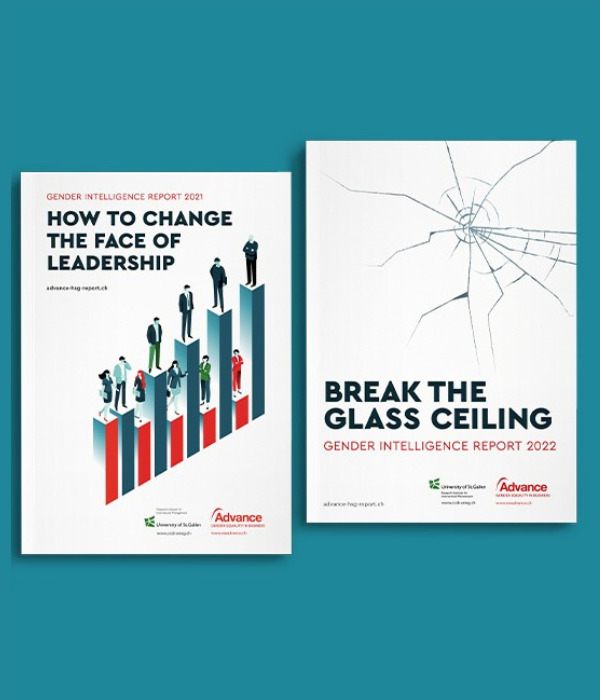Online sessions
Tuesday, 12TH SEPTEMBER

PARADOXES OF NEW LEADERSHIP OR THE LONG FAREWELL TO THE MALE IDEAL OF HEROIC LEADERSHIP
Prof. Dr. Julia Nentwich| German
What happens to the ideal of the male, heroic leader when we start to think differently about leadership in the context of “New Work”? Why is it not enough to counter these with a “female” image of leadership? Why is leadership seen as heroically masculine in the first place and how can we change that?
With “New Work” not only our organizations are about to change, but as well our image of leadership. While we are about to say goodbye to the male and heroic and masculine image of leadership, it is as our research shows still very present in today’s working world. How can we explain the persistence of these old images? And how could new, more participative and non-hierarchical images of leadership be established in a sustainable way? In my talk, I will analyze this paradox and show new ways in which we can say goodbye to the strong image of the male hero in our image of leadership.

Subtle or obvious? Challenging discrimination in hybrid work settings
Dr. Anna-Katrin Heydenreich | German
Not only obvious discrimination, but also subtle degradation and social exclusion massively affect well-being and performance at work. Common ‘isms’ such as sexism, racism, ableism, and ageism manifest themselves in varying degrees of intensity, from microaggressions to hate speech, and find specific forms of expression in new work environments. This talk addresses the following questions:
What are the particularities of discrimination in hybrid settings? To what extent do hybrid forms of work exacerbate discrimination? To what extent does the possibility of switching to virtual work spaces offer protection and refuge? Which strategies are available to effectively counter the various forms of discrimination and to create a respectful culture in hybrid work environments?

Successful Value Communication – Implementing an LGBTQ+ communication strategy
Reyn ffoulkes, Michel Rudin | German
What does it take to communicate values successfully? What are possible elements of an LGBTQ+ communication strategy? How can the communication strategy be anchored in society?
The input will cover the topic of value communication with a focus on the diversity dimension “sexual orientation”. I will use a concrete example from the well-known beverage manufacturer to show participants what the implementation of a successful LBGTQ+ communication strategy can look like. The guiding question is always: How can the strategy be anchored in society?
I will present, among others, the following measures taken in collaboration with Coca-Cola: the Pride Brunch, publication of press articles and creation of a board to represent the LGBTQ+ community. Why these of all things? What role does public perception play? And what can be used to measure strategy success?
We will address these and other questions following the presentation.
WEDNESDAY, 13TH SEPTEMBER

Am I risking my pension by working part-time?
Eva Fasel, Theresa Goop, Dr. Tanja Kirn, Dr. Svenja Schmidt, Raphael Summermatter | German
Explore with our experts how your present employment decisions affect your retirement planning and financial security. Join us for an enlightening panel discussion that delves into the intricate implications of part-time work and other contemporary employment forms on retirement.
During this online session, our panel of experts, hailing from both research and practical backgrounds, will scrutinize the far-reaching effects of modern work arrangements. Gain valuable insights as they shed light on the potential risks and opportunities associated with these evolving work styles and lifestyles.
Discover the “blind spots” that often go unnoticed and the extent to which they affect individuals and their retirement prospects. Following the panel discussion, a Q&A session will allow the audience to directly engage with our experts.

HOW PRIVILEGE WORKS – Critical Perspectives on Privilege and Deservingness
Prof. Dr. Christa Binswanger, Prof. Dr. Jelena Tošić | English
How are discourses of privilege and deservingness related? How can they be understood in a transdisciplinary conversation between Critical Diversity Studies and Anthropology? In this contribution we explore how some forms of contemporary work and figures of workers become moralized and we shed critical light on the entanglement of deservingness and privilege.
The term ‚deservingness’ captures moralized framings of how certain members of a society are seen as entitled to particular resources or statuses. At the same time, others are labelled as undeserving since framed as members of certain populations or as being in self-inflicted precarious situations. In critical diversity studies, the term ‘privilege’ is used to challenge hierarchies that appear to be based on merit and achievement. In our contribution, we develop a transdisciplinary dialogue on privilege and (un)deservingness by zooming into contemporary cases of gendered, and differentially nested forms of work.

What does AI have to do with DE&I? (and vice versa)
Prof. Dr. Jamie Gloor, Marisa Tschopp | English
We hear a lot about Artificial Intelligence (AI) and Diversity/Equity/Inclusion (DEI) when something goes wrong: Microsoft’s AI chatbot, Tay, became a racist, antisemitic jerk in less than a day; Amazon’s AI-based recruiting tool identified potential talents who were named “Jared” and played “lacrosse” (i.e., biased against women); machine translation tools like deepl still broadly and automatically generate male-biased translations (e.g., “doctor” as “Arzt”). In this talk, we’ll explore key pitfalls—and potential—for moving forward with more equitable and inclusive AI in our present and future work.
Thursday, 14TH SEPTEMBER

Prof. Dr. Stephan Alexander Böhm, Magdalena Schertler | English
In this presentation, learn about the challenges and opportunities flexible work arrangements pose for employee inclusion. Based on current research, we address the effect of mobile working on inclusion, the role of boundary management, and gender specific findings. Finally, we present recommendations for practice to overcome challenges and effectively use opportunities to promote employee inclusion in a flexible work environment.
In today’s working world, flexible working hours and location have become the new normal for many employees. Such changes in the work environment can affect employees’ perceived inclusion, which motivated the CDI-HSG to conduct research on this topic. Based on current findings, in this presentation we will address what challenges and opportunities flexible work arrangements pose for employee inclusion.
Specifically, we will address the questions of how mobile working affects employees’ perceived inclusion, the role of boundary management in flexible working, and whether there are gender differences in the effects of flexible working. We will then address unanswered questions and provide an outlook on how these can be answered in the future. Finally, recommendations for practice will be presented on how challenges can be overcome, and opportunities can be used effectively to continue to promote employee inclusion in a flexible work environment.

REMOTE WORK AND THE QUESTION OF CORPORATE RESPONSIBILITY
Dr. Florian Krause | German
New forms of work: New opportunities – but, of course, also challenges
What responsibilities do companies bear when they send employees to work in a self-organized and decentralized manner?
With new technical possibilities a “new world of work” has been postulated, in some cases quite innocently, and only a few thoughts have been directed at already familiar problems of decentralized, self-organized work. These forms of work are, however, not categorically new, but have so far been limited to a few fields of activity. From an ethical perspective, the spread of new forms of work changes current norms of employment relationships in particular. This raises questions that particularly affect corporate responsibility in this context as well as the institutional framework of work, some of which will be explored in this lecture.

GENDER INTELLIGENCE REPORT (GIR)
Dr. Ines Hartmann, Alkistis Petropaki | English
How can you unleash the full potential of diverse talent to counteract the skills shortage? How employees want to work, and what companies need to change internally to retain them? What some ground-breaking evolutions are in the way we work that will bring us successfully into the future?
In the launch of the GIR you will hear about the latest facts & figures, insights as well as new best practices. The report 2023 focuses on the following burning topics:
SKILLS SHORTAGE IN SWITZERLAND, UNTAPPED POTENTIALS and PARADOXES AND SOLUTIONS
This year’s report analyzes these three paradoxes that are at the heart of the still slow progress in women’s career advancement and closely link to how we work in Switzerland. Resolving these paradoxes will likely mitigate skills shortages as well as increase gender diversity in business.
A must event for anyone who is committed to advancing gender equality in the workplace!
Friday, 15TH SEPTEMBER

D&I MORNING TALK: D&I FOR GEN ALPHA – NEW WORK 2030
Stephan Lendi, Carmen Lopes Sway | German
“Tante Carmen” (Auntie Carmen) – every kid’s favourite aunt, is a character created by Swiss singer, songwriter and performer Carmen Lopez Sway. Carmen works in her character with generation alpha kids and includes them in her performances by letting them sing and dance along to her D&I-themed songs.
Stephan Lendi, moderator, communications coach & journalist explores Carmen’s background, how she grew up in a diverse Brazilian-Swiss family to better understand her values, that drives her work with generation alpha kids. How will they grow up? What will their understanding be of new work and how will that shape our world?

NETWORKING IN THE NEW WORLD OF WORK (FOR WOMEN, MINORITIES, AND MINORITY WOMEN)
Dr. Mihwa Seong | English
Are you interested in how to successfully network in the new world of work? Or, whether successful networking strategies look different for women and minorities? These are some questions we will address in this session.
The session will discuss a) what we know about effective social networks/networking, b) the implications of the changing landscape of the future of work, c) how effective networking strategies may look different for women and minorities based on a 1-year ethnographic research.

TRANS IN THE WORKPLACE: THE BENEFITS OF GENDER DIVERSITY AND INCLUSION
Sandro Niederer | English
Recognizing and consciously including gender diverse people in academic and workplace settings brings not just its own set of challenges but also many options for improving our understanding of work and science related processes as well as leadership. What can we learn by interacting consciously with topics affecting marginalized minorities such as gender? And how can that help us to improve both our actual work and our institutions?
Academic workplaces and institutions offer great opportunities for employees to contribute to both science and our society at large with their work and resources. Providing an environment where people of all identities are able to participate and feel safe to contribute, opens up unique opportunities for development by bringing innovative thinkers to the table.
By learning about the current and past situations of trans people in Switzerland, we learn how to approach solidified structures, rectify past mistakes and provide a safer workspace for gender diverse people. All whilst exploring what you can learn for yourself from trans individuals.
